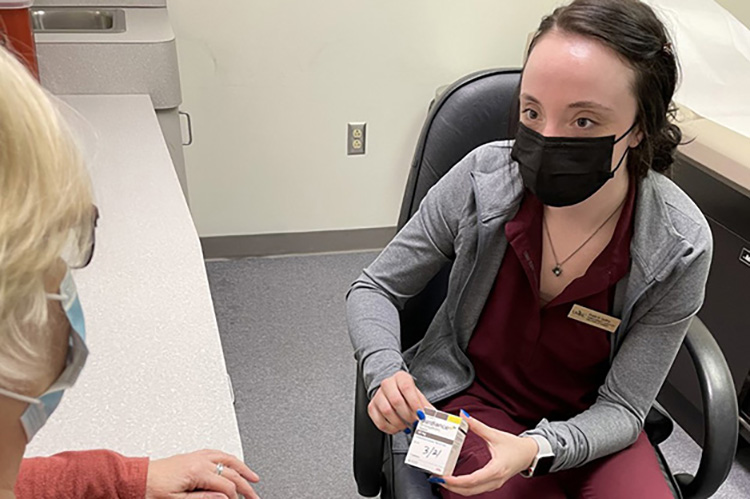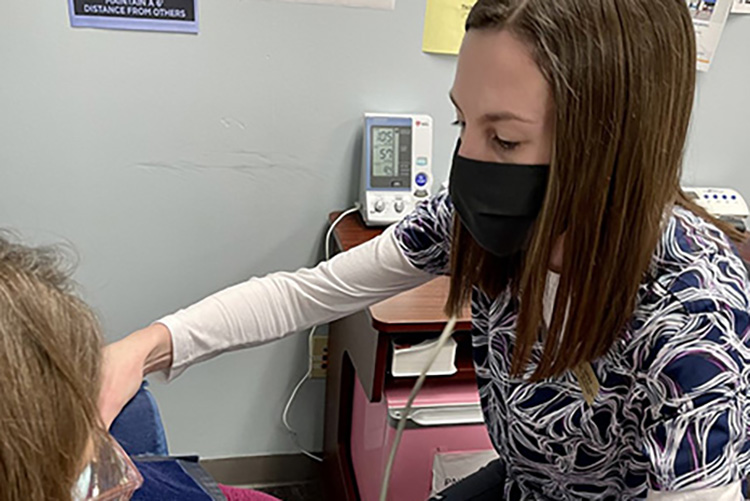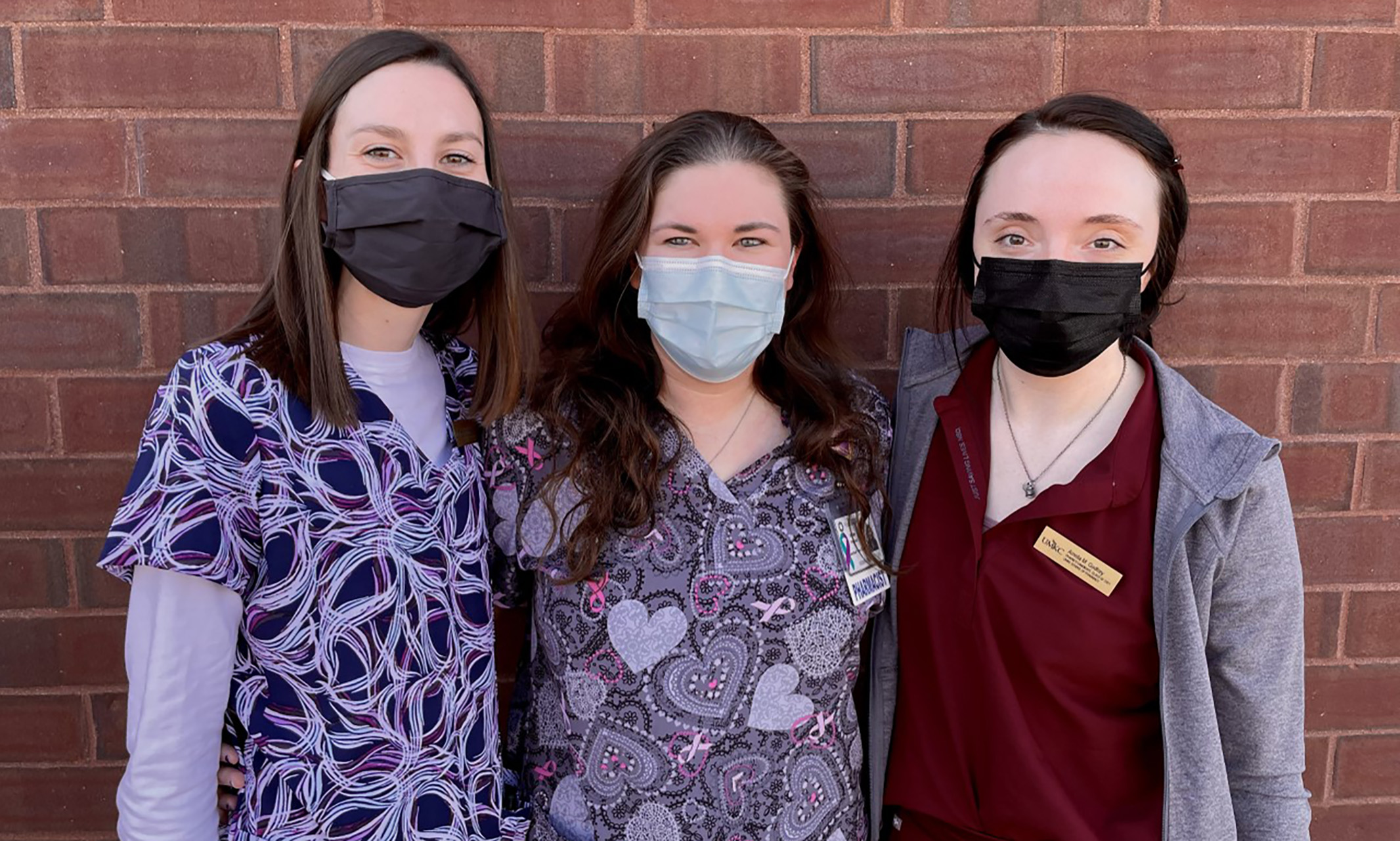Before the coronavirus ever swept across the globe and became a pandemic, UMKC School of Pharmacy student Amelia Godfrey had already decided to go home to Hannibal, Missouri, to do her ambulatory care rotation at the Hannibal Free Clinic.
Having grown up in the northeast Missouri community of about 17,000 made famous by Mark Twain, she looked forward to the time when she could return and be a part of giving back to the community.
 “I've been interested in doing primary care, so I was really excited to come back home for a couple of rotations and be here at the free clinic to help with those patients,” said Godfrey, who spent the month of February working in the clinic. “When COVID hit, you got to play a bigger role. There's a huge need for what they're doing right now and I've seen that in my community.”
“I've been interested in doing primary care, so I was really excited to come back home for a couple of rotations and be here at the free clinic to help with those patients,” said Godfrey, who spent the month of February working in the clinic. “When COVID hit, you got to play a bigger role. There's a huge need for what they're doing right now and I've seen that in my community.”
Godfrey is one of four UMKC pharmacy students who have done month-long rotations serving at Hannibal Free Clinic since the COVID pandemic began. Haley Hurst, the clinic’s pharmacist and one of only four paid staff members, welcomed the help with open arms.
“We are mostly a volunteer clinic, run by retired nurses and office staff,” Hurst said. “A lot of them had to stop coming from March 2020 through now because of COVID and these students were really a saving grace for us. It really helped us bridge the gap because we basically lost almost all of our volunteers.”
The clinic covers an area of six counties surrounding Hannibal, proving primary care services for uninsured adults from 18 to 64 years old. It serves as many as 400 patients a year with about 100 to 150 of them being part of the patient centered medical home, a program of patients who meet with Hurst and her student pharmacists for additional education and medication management.
There is a waiting list to be seen that is based on the level of need. That has only grown throughout the COVID pandemic.
Hurst meets with patients referred to the clinic to provide help with issues from diabetes, cholesterol and smoking cessation, to blood pressure issues.
“We have been so short on nursing volunteers to help with taking vitals and doing medication reconciliation for our volunteer providers,” Hurst said. “The students have been a humongous help to us.”
 Lauren Damon, a School of Pharmacy student who worked at the clinic this past August, grew up just eight miles from Hannibal in Palmyra, a small community of only about 3,500 people.
Lauren Damon, a School of Pharmacy student who worked at the clinic this past August, grew up just eight miles from Hannibal in Palmyra, a small community of only about 3,500 people.
“Palmyra is such a small area that there are not a lot of ambulatory care clinics like this around,” she said. “So, it was really interesting to me to see that they have this and that they can reach all the people that really need the help.”
Since their time at the Hannibal Free Clinic, both Damon and Godfrey have also taken part in rotations at the Hannibal Regional Hospital, which have included working in the hospital’s vaccine clinic.
But they say that it was their time at the free clinic that was particularly eye-opening. Hurst smiles when sharing that both students had the opportunity to experience having to convince a patient to take their medications. Damon and Godfrey said they saw how Hurst and the staff go the extra steps to fully care for their patients.
“You can learn what medicine to give a patient for high blood pressure,” Damon said. “But asking them things that you don't think about all the time like can they afford it, do they have transportation to get their medication. You really get a sense of that here, how to look at people as a whole picture instead of just, okay, we're prescribing you this medication and send you out the door.”
Godfrey said the clinic provided her the unique opportunity to spend more time talking with her patients about their medications and needs and learning how she could better help them.
“This is a free clinic and there are all sorts of things that they connect patients to,” Godfrey said. “There are services for mental health. There are services for dentists and podiatry and all these other things that Haley and the staff are looking to connect these patients to. So now the patient is being taken care of as a whole, rather than just kind of looking at them as somebody who takes a list of medications. I've been on some pretty cool clinic rotations with some pretty cool pharmacists, but this one by far was the most impactful because they are 100 percent all in.”

